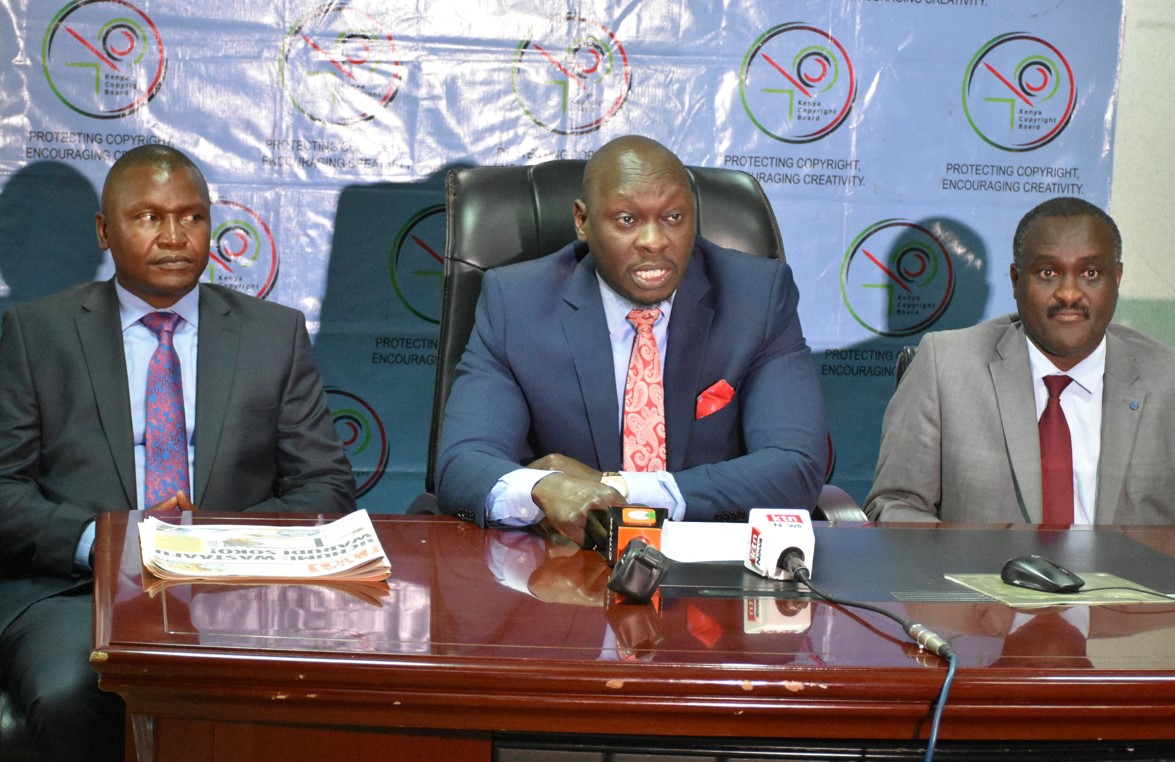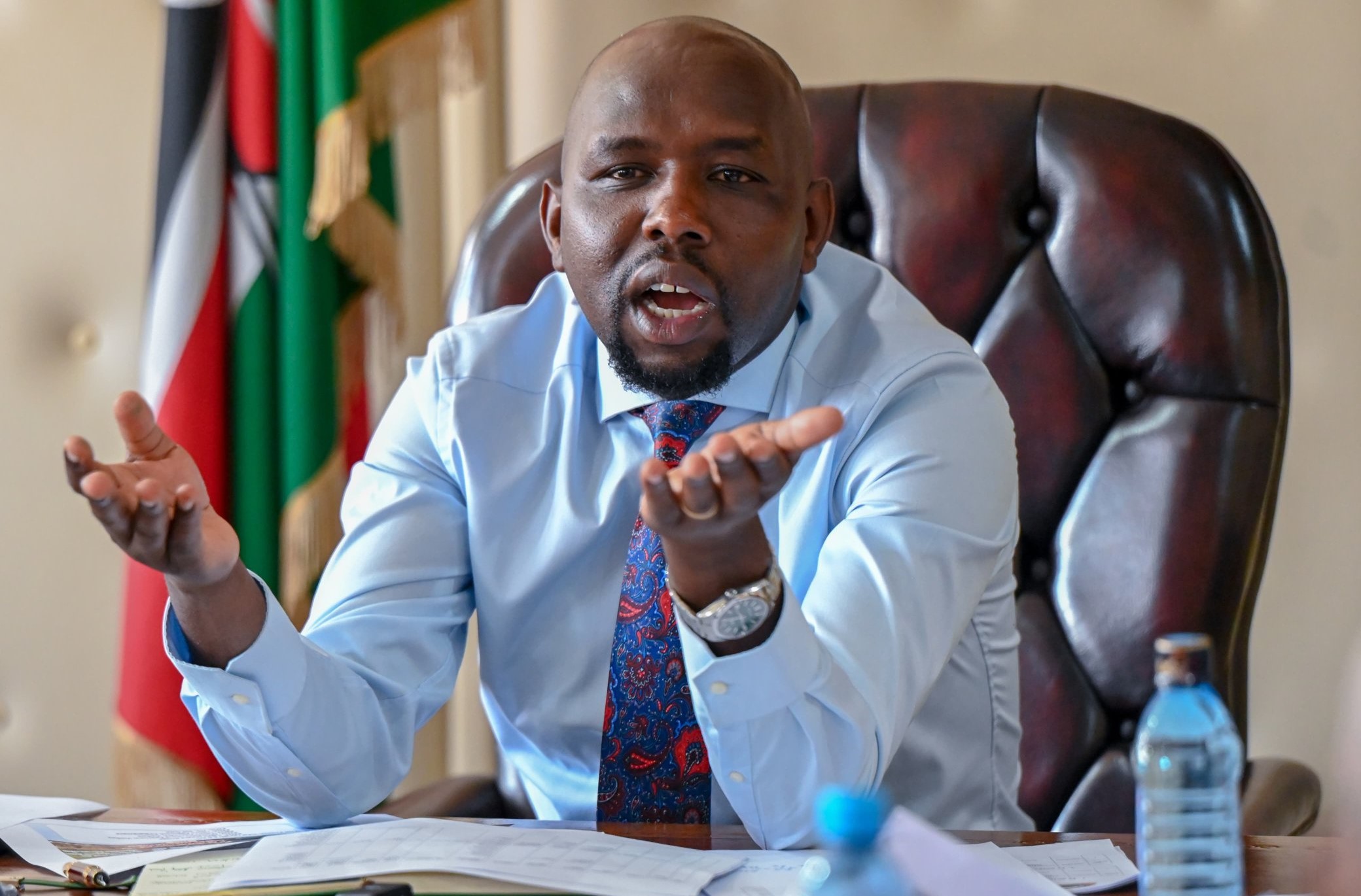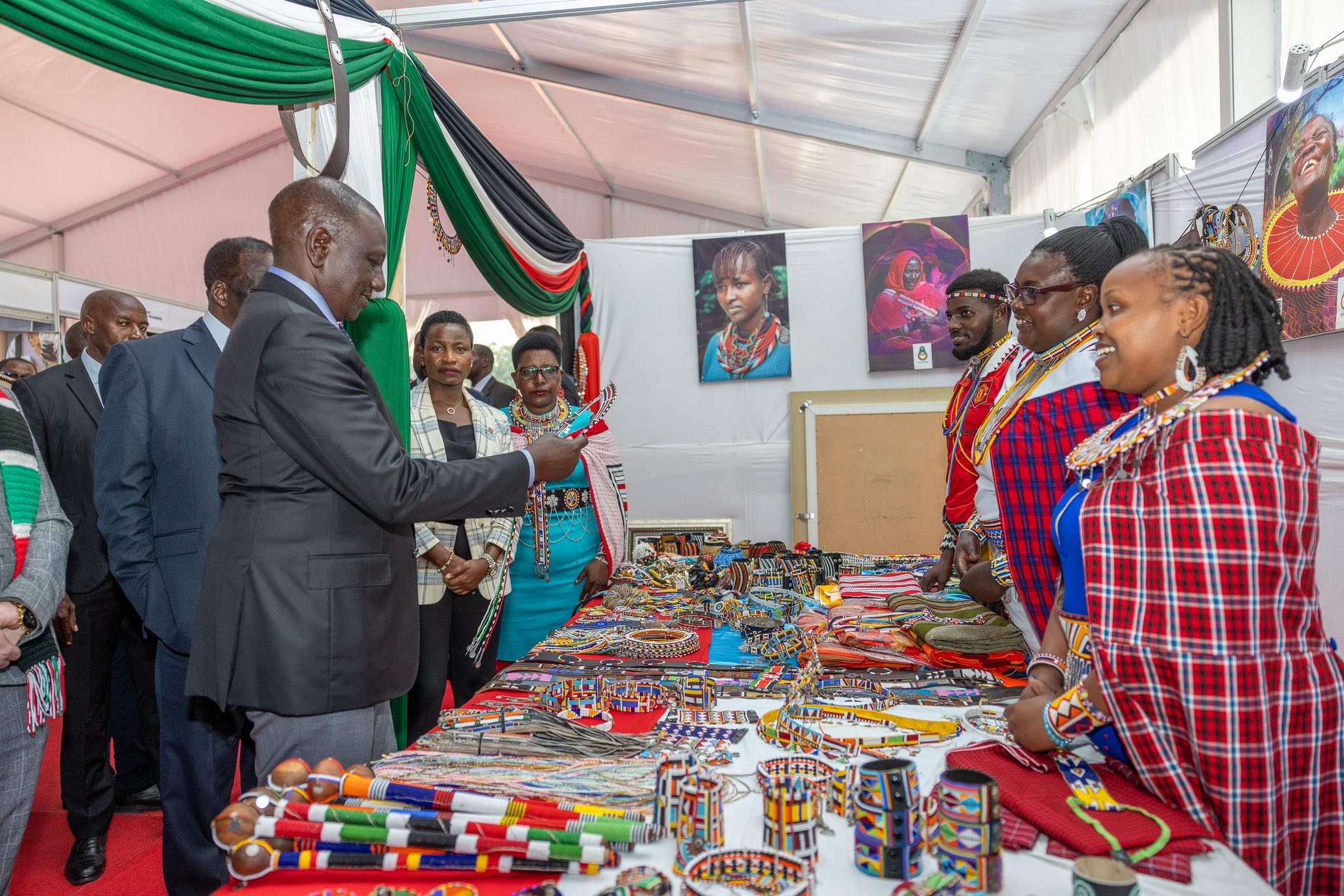Govt picks Performing and Audio-Visual Rights Society of Kenya to collect music royalties

Kutuny, a former Cherangany MP, stated that they were concerned by the failure of the three CMOs to actualise an MoU signed between them.
The Kenya Copyright Board (KECOBO) has granted The Performing and Audio-Visual Rights Society of Kenya (PAVRISK) a one-year license to collect and distribute artists' royalties.
PAVRISK formerly Performance Rights Society of Kenya (PRISK) will manage all rights in music and for performance in the audiovisual sector but will not manage rights for publishing and film producers for the time being.
KECOBO chairman Joshua Kutuny, on Thursday, said that they settled on PAVRISK from five Collective Management Organisations (CMOs) that had applied for the licence. These were PAVRISK, the Music Copyright Society of Kenya (MCSK), Film Makers Rights Achievers of Kenya (FRAK), Kenya Association of Music Producers (KAMP), and Collective Management Services.
More To Read
- Less than 50 per cent of healthcare facilities reimbursed by SHA – Report
- Confusion and concerns persist as Kenyans struggle with new social health insurance scheme
- Hospitals seek detailed breakdown of SHIF payments amid ongoing delays
- SHA technical hitches hindering hospital operations, patient services, says Rupha report
A vetting process of two months was then conducted to screen the CMOS, with KECOBO receiving hundreds of written submissions which guided the selection process. The copyright board, thereafter, invited members of the public for a public participation forum on the suitability of the applicants earlier published.
Over 200 people including representatives of the applicant CMOS attended the exercise held on May 28, 2024, at the National Health Insurance Fund (NHIF) auditorium.
"It is important to note that this process of licensing the CMOs is coming at a time when the government has advised the Board to streamline the sector to check on mismanagement of resources, unfair distribution of royalties and help cut down on the operation cost for the CMOS. The Government has also advised on the need to increase allocation for the artists to at least 70 per cent of the royalties collected," the KECOBO chair explained.
One of the reasons for streamlining the sector and settling on one CMO to collect the royalties was the continuous wrangles that have bedevilled the CMOs.
Kutuny, a former Cherangany MP, stated that they were concerned by the failure of the three CMOs to actualise an MoU signed between them and a tripartite agreement to end the disputes.
"To cure the wrangles between the CMOs and to make it easy to regulate the affairs of royalties collection and distribution, the Board approved the licensing of a single organisation to manage rights in the music sector," said Kutuny.
He added that the three CMOs had been using the same system to collect royalties and suing common staff members and two have been sharing an office yet each of the three entities has a CEO and separate board of directors which has been a cause for the rising cost of operations.
Kutuny said settling on PAVRISK will help cut costs and increase royalty distribution to artists.
"The government advocates for 70 per cent of royalties collected to go to artists," Kutuny detailed.
“The Board will shortly commence the process of negotiation for new tariffs to be published in the Kenya Gazette by December 2024 to respond to the call to lower the cost of doing business for copyright work users,” he added.
Kutuny also announced new changes at KECOBO with George Nyakweba succeeding Edward Sigei as Executive Director in acting capacity pending the recruitment of the new CEO to be completed by September 2024.





















